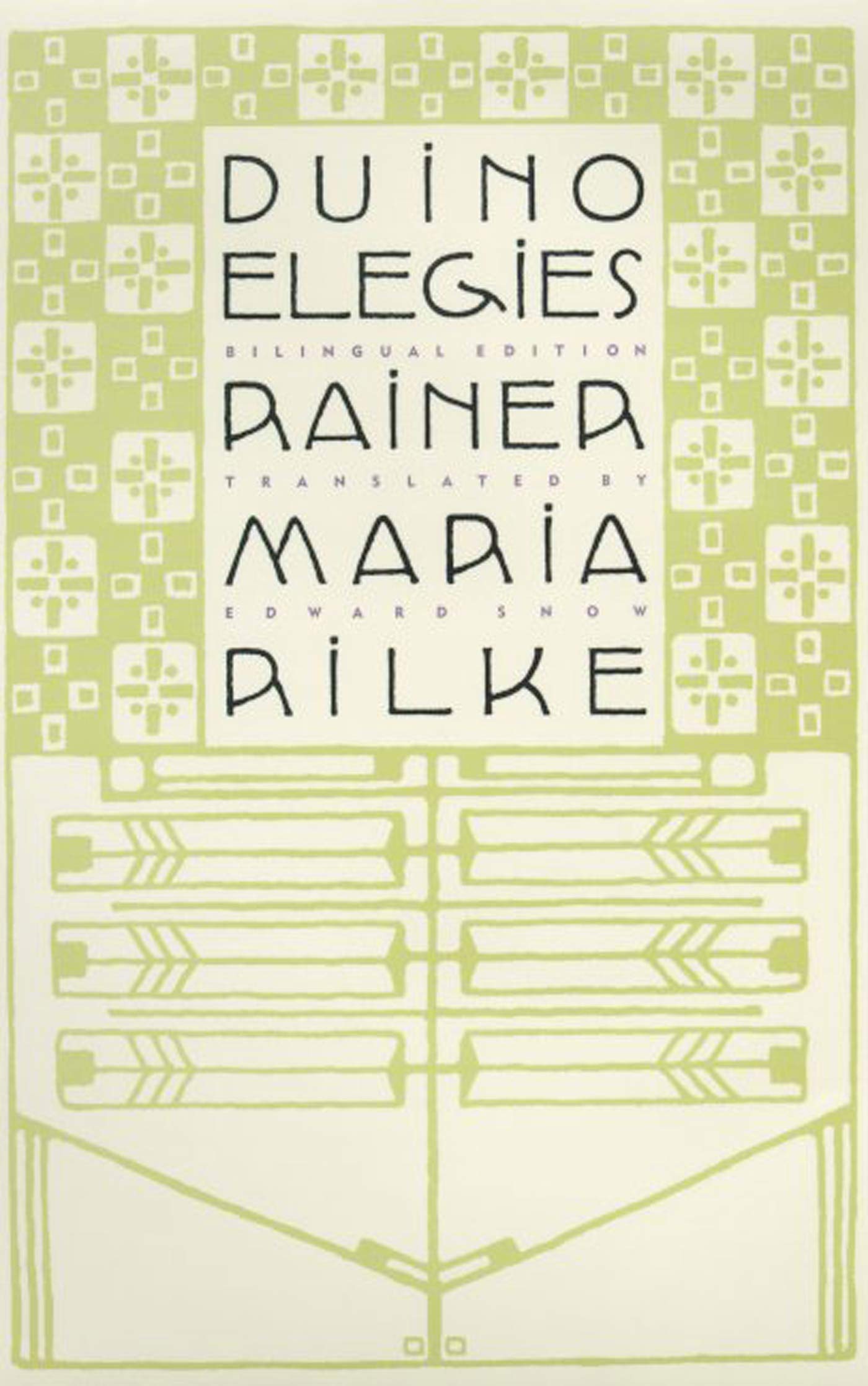Customer Services
Copyright © 2025 Desertcart Holdings Limited


Duino Elegies: A Bilingual Edition
M**K
Excellent
I graduated from the somnolent state known as high school in 1975. I woke up ravenous. I wanted to learn everything, whether through experience or literature. It was around 1982-83 that I stumbled on the MacIntyre translation of the Duino Elegies. At that time I was exploring the Tao and Buddhism, wandering around the north woods of Minnesota imagining myself merging with nature. I was ripe for a line like "for when we feel we evaporate" from the second elegy.Since then I've acquired and read translations by Miranda (forgettable), Bly (which reminded me of a line from an old television show, Room 222, in which someone is complaining about the trend to update literature to suit the modern reader, that's like twisting Poe to "The raven said, 'No way, man'"), and Mitchell. The Stephen Mitchell has since become the standard translation. It's beautiful but, to me, never hits as hard as the MacIntyre did. It always seemed a little evanescent. What is the real Rilke? I'll never know, since I don't know German. (I do have a CD of the elegies read by Jürgen Goslar so I can at least hear the rhythm of the German.)I've read in one of these other reviews that this translation by Snow is more literal than the Mitchell. That review compared passages from both, generally preferring the more "poetic" language of Mitchell, as though it conveyed more feeling. I've always preferred MacIntyre's translation, which is very close to the Snow. It has a plainer language and resonates more deeply for me. The line quoted above, about evaporating, was said differently in the other translations and went by unnoticed. The other translations didn't speak to me the way the MacIntyre and Snow translations do. If these two are the more literal translations are they truer to Rilke? Damned if I know. I'll leave that debate to the scholars. All I can say is that they are the translations that most move me.
J**H
Snow has indeed outdone himself...Rilke would be proud!
This book of poetry stands head and shoulders above anything else written in the 20th century, including everything I've seen so far by Robert Bly (one of my personal favorites in American Poetry). Written right around the time when the Great War (World War I) was coming to a close by a young German poet who was staying for a brief time in an Italian castle belonging to a friend, the Duino Elegies are impossible to describe. You must read them for yourself to begin to appreciate the genius of Rainer Maria (his middle name was that of his mother)...This volume, translated by Mr. Snow, contains both the original German and its translation into contemporary American English. The translation compares in precision and depth to Coleman Barks' translations of the 13th century poet Rumi, an Islamic poet who happened to live in the small rural village of Konya (which is now considered part of Turkey), but wrote his poetry in classic Persian (the sacred language in which the Koran is written). For those of you familiar with Rumi's poetry and teaching stories, through Mr. Barks' translations, that is indeed saying something. I can find no fault with Mr. Snow's rendering - not that it can necessarily stand alone without reference to the original German [with poetry one is always advised to consult the original if at all possible] - but that it is consistently brilliant and often surprisingly inspiring. In other words, a delight to read - no matter what one's personal level of experience with the German language.
R**Y
Exceptional translation
Rilke can seem elusive in any language. And even though that is sometimes the point with this wildly mystical thinker, a sharp translation can help the poet's meaning successfully find our ears. This bilingual edition translated by Edward Snow feels very powerful and direct to my modern sensibilities. When I read it with a German speaking friend, we can take it even deeper due to the bilingual feature. Highly recommended.
H**L
Breathtaking
I purchased this book as one of several to read for my Master's degree in poetry. Of the fifteen books I have read thus far, this is absolutely my favorite book. Although I wish I could read the original german, Snow's translation reads flawlessly. The language is beautiful and obviously carefully chosen. It is also interesting to have both the german and the english running side-by-side. The poetry itself is absolutely stunning. Rilke's use of metaphor and synechdoche are brilliant. I highly recommend this book to any poet, or any admirer of the craft.
R**E
Five Stars
Best translation of the many I've read, in my opinion. I appreciate the side-by-side German and English.
R**R
These poems are so beautiful. I love this straight-forward translation
These poems are so beautiful. I love this straight-forward translation.
S**Y
Beautiful edition
One of the greatest poems of the 20th Century in bilingual format, with a wonderful translation. Absurdly low price. I'll probably get "Sonnets to Orpheus" after I finish Duino Elegies.
J**W
Acclaimed translator gives us the "Duino Elegies"
Edward Snow is one of the most respected translators of Rilke. He's been working his way through Rilke's poetry and now offers a superb version of the "Duino Elegies," long considered the high point of Rilke's career.There are many existing translations of Rilke's masterpiece, of varying quality. Snow's version reads quite well and compares favorably to acclaimed versions by Mitchell and others.
C**R
Beautiful book
Bought this as a birthday present for a friend; I can't vouch for the translation but Rilke's a beautiful writer and this hardcover edition is a beautiful book, art-nouveau-y cover and thick cream pages, it's superb.
R**N
Best.
Great quality paperback... a perfect edition of Rilke's magical and mystical verse.
S**S
Edición estúpenda
Tal como la espera, la edición cumplió mis espectativas.
Trustpilot
1 month ago
2 weeks ago